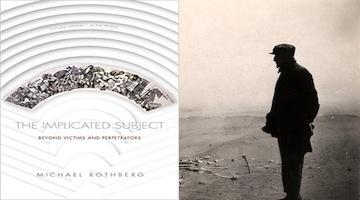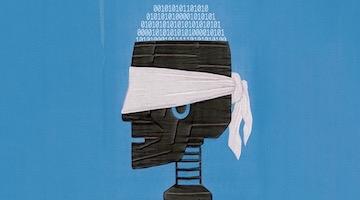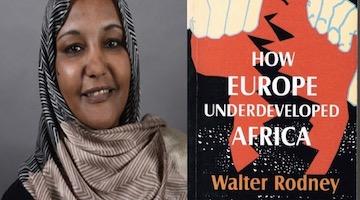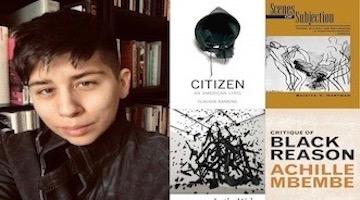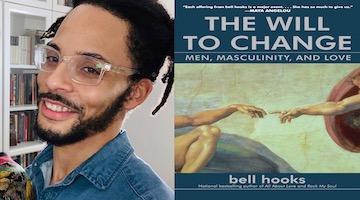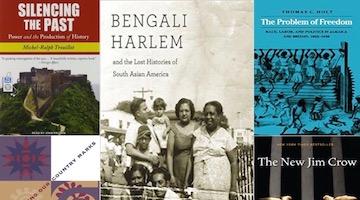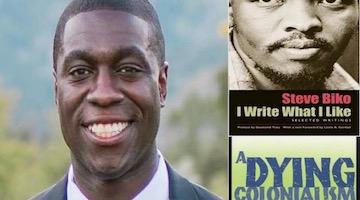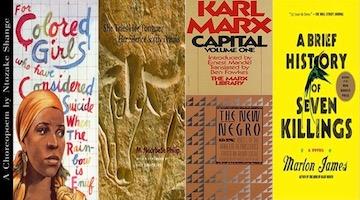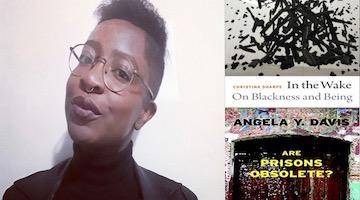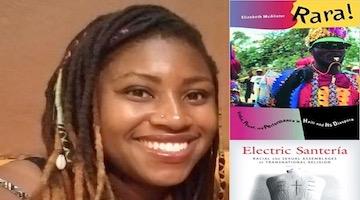Black adults must not allow “Hollywood to fill in the blanks” in our children’s understanding of Black history.
“We are in a time where individualism is encouraged over community.”
In this feature, we ask educators to list books they most enjoy teaching in their communities. Contributors include professors, graduate students, artists, journalists, organizers, activists, and other community leaders. Readers of the Black Agenda Report understand that the university classroom isn’t the only place where learning happens. Submissions therefore include lists of books that are taught at community workshops, mosques, churches, prisons, libraries, the local preschool, or even a weekly book study on one’s front porch. This week’s contributor is Erica Caines.
One of the many things that sadden me is the warped and shallow conversations about “representation.” There is a fixation on “seeing ourselves” without truly knowing or understanding ourselves. This is the reason I started Liberation Through Reading, a children’s book gifting initiative that provides free Black centered books to Black children, written by Black authors. At each event, I talk about the importance of cultivating home libraries and the importance of seeing ourselves in our homes. There are a variety of books that range from picture book/ early reader to college level.
“There is a fixation on ‘seeing ourselves’ without truly knowing or understanding ourselves.”
What has driven me to create this program is the reliance on Hollywood narratives to tell stories we are more than capable of telling ourselves and have. When Hollywood tells our stories or gives us a platform to tell our stories, we are often left wanting more and that is because we are unfamiliar with these stories until they are put on a big screen. That is because our colonized education system gives us bite-sized versions of our history and we then look to Hollywood to fill in the blanks.
Liberation Through Reading seeks to foster the love of reading in our children through representation so that we don’t lose that hunger for our stories and histories as an adult--- so that we aren’t misinformed about our stories and histories because we never sought to learn it outside of the Hollywood lens.
The recent release of the movie Harriet, and the controversy surrounding the Hollywood narrative helped me understand the importance of Liberation Through Reading. Below, I’m going to discuss three books offered for free to Black children in Black communities about an abolitionist and Black American legend, Harriet Tubman.
Harriet Tubman
Harriet Tubman didn’t take no stuff
Wasn’t scared of nothing neither
Didn’t come in this world to be no slave
And wasn’t going to stay one either
“Farewell!” she sang to her friends one night
She was mighty sad to leave ‘em
But she ran away that dark, hot night
Ran looking for her freedom
She ran to the woods and she ran through the woods
With the slave catchers right behind her
And she kept on going till she got to the North
Where those mean men couldn’t find her
Nineteen times she went back South
To get three hundred others
She ran for her freedom nineteen times
To save Black sisters and brothers
Harriet Tubman didn’t take no stuff
Wasn’t scared of nothing neither
Didn’t come in this world to be no slave
And didn’t stay one either
And didn’t stay one either
by Eloise Greenfield, Honey, I Love
Honey, I Love, by Eloise Greenfield
My earliest recollection of this biographical poem is first grade. My teacher, a proud Pan-African Brooklynite, assigned the class with the task of memorizing the poem to read aloud at an assembly for a later date. Twenty-seven years later, I can still hear her yelling “Harder! Fiercer!” when I read this poem to my son and got to “wasn’t scared of nothing either.” What was drilled into me wasn’t simply a poem, but a testament to the character of Tubman. This wasn’t only a poem my 1st-grade teacher had me memorize but also made me feel.
Since then, the words of Eloise Greenfield have stayed with me and shaped how I’ve come to not just know the legacy of Tubman but understand the history. Greenfield is a Black American treasure. As a biographer, children’s book author and poet Greenfield’s work has captured the life of everyday Black- American communities and families. Her positive portrayal of Black life and rhythmic style is evident in this poem found in her children’s poetry book, Honey, I Love. This poem captures is the essence of Tubman in just a few stanzas.
“Greenfield is a Black American treasure.”
“Didn’t come in this world to be no slave and wasn’t going to stay one either” speaks to the determination of a woman who knew there was more to life than being enslaved and set out to seek a life free from that. “Nineteen times she went back South to get three hundred others” speaks to her selflessness. After gaining her freedom, she went back not once, not twice, but 19 times for her “Black sisters and brothers.”
There is much current significance in her repeatedly going back when we look at the systemic oppressions we are facing. We are in a time where individualism is encouraged over community simply because our communities are fractured and escaping them seems to be more of a concern than healing them. Tubman could have very well lived the rest of her life as a free woman (for whatever that was worth during that time) with no concern for who she left behind, but she didn’t. She instead saved over 300 enslaved Africans by helping them make their way to freedom utilizing allies in abolition through the Underground Railroad.
Aunt Harriet’s Underground Railroad In The Sky, by Faith Ringgold
Which brings me to another important children’s book on the legacy of Harriet Tubman: Aunt Harriet’s Underground Railroad In The Sky, by Faith Ringgold. Ringgold is a Black American teacher, sculptor, and mixed-media artist best known for her painted story quilts and her impact on Black children in the 90s with her more than 30 children’s books.
This book reintroduces us to Cassie from Tar Beach, who flies over New York City, and her little brother Be Be. In this story, Cassie takes us on another adventure traveling the Underground Railroad to freedom, just like her enslaved ancestors generations before did. The siblings are separated and Cassie, with the help of Harriet Tubman, has to trace her brother’s steps through the Underground Railroad (from the South to Canada) in order to find him.
This book helps familiarize our children with how the Underground Railroad functioned and the many risks enslaved Africans faced to be free. The book shows a variety of people that made up the network (Black and white, alike) who offered shelter and aid to escaped enslaved Africans traveling North. It also shows us how the Underground Railroad, while not literal, functioned like a real railroad system—homes, and businesses that harbored runaways were known as "stations" and were run by "railroad agents." "Conductors," like Tubman, moved the fugitives from one station to the next.
Moses: When Harriet Tubman Led Her People To Freedom, by Carole Boston Weatherford
One important aspect that neither the poem by Greenfield nor the book by Ringgold touched upon is Tubman’s belief in Christianity. While it is said that her relationship with God and hearing him was the result of a head injury when she was a young enslaved African, it is that relationship that made her fearless in her pursuit to freedom for herself and hundreds of others. Her fearlessness, of course, did not mean she moved without fear but instead moved with a purpose.
That is capsulated in the book Moses: When Harriet Tubman Led Her People To Freedom by Carole Boston Weatherford. With vivid and bold imagery by renowned Black illustrator, Kadir Nelson, Weatherford depicts Tubman as not only strong and humble but devoted to God. Tubman is led by her faith, believing that freedom was her personal mission from God.
This, of course, is the antithesis of the material realities of how “Black church” functions today, with more emphasis on assimilating into conditions instead of breaking free from them. Weatherford, who “mines the past for family stories, fading traditions, and forgotten struggles," does a fantastic job of allowing us to understand Tubman as a full person and real person—not a superwoman, but a woman of God.
“Didn’t come in this world to be no slave… And didn’t stay one either”
Erica Caines is a poet, writer and organizer in Baltimore and the DMV. She is an organizing committee member of the anti war coalition, the Black Alliance For Peace as well as an outreach member of the Black centered Ujima People’s Progress Party. Caines founded Liberation Through Reading in 2017 as a way to provide Black children with books that represent them and created the extension, a book club entitled Liberation Through Reading BC, to strengthen political education online and in our communities.
COMMENTS?
Please join the conversation on Black Agenda Report's Facebook page at http://facebook.com/blackagendareport
Or, you can comment by emailing us at comments@blackagendareport.com

